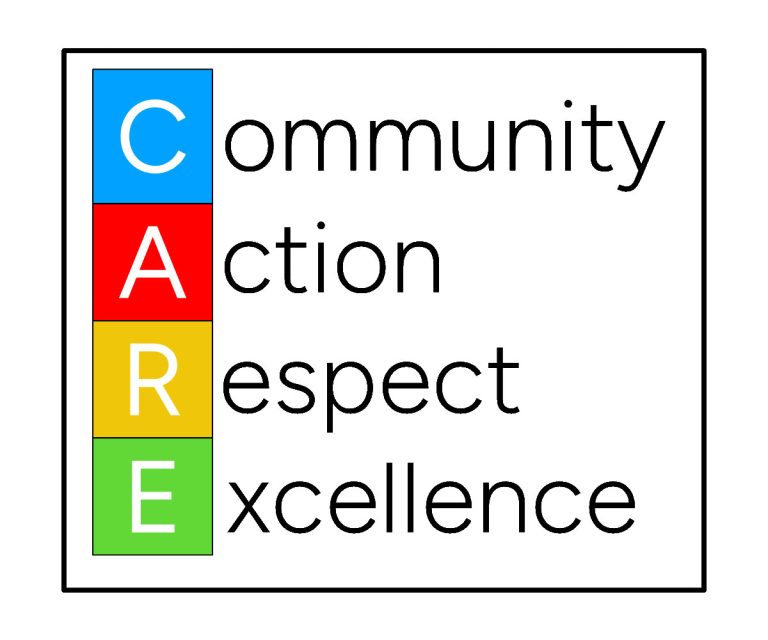What Makes Us Different?

We believe that education goes far beyond academic results: our approach is holistic and focuses on nurturing the whole child. Our CARE Competencies Framework ensures your child develops the key life skills they need to succeed – alongside their academic achievements. These 12 Competencies are woven into every lesson, activity, and experience at school, equipping students with the tools to thrive in today’s fast-changing world.
How the CARE Framework Shapes Learning at Byron College
- Integrated into the Curriculum: Teachers seamlessly integrate CARE competencies into lessons, activities, and projects, helping students develop these skills through practical, real-world learning.
- Personalised Development: We encourage students to take ownership of their growth by setting goals and connecting their learning to their unique passions and aspirations.
- Ongoing Assessment: The competencies are assessed as part of regular reporting, providing detailed feedback on each student’s progress and supporting their development.
Community
Fostering a strong, supportive community helps students build relationships, embrace diversity, and work together to achieve shared goals.
Communication: Students learn to express their ideas clearly, listen actively, and adapt their communication to different audiences and contexts, helping them build strong relationships and work well with others.
- Focus: Active listening, presenting ideas effectively, and inspiring others through confident dialogue.
- How: Through class discussions, presentations, and group activities, students practise sharing ideas, listening respectfully, and giving and receiving constructive feedback.
Collaboration: Teamwork is at the core of community. Students develop the skills to work with others, resolve conflicts, and contribute to group success.
- Focus: Building trust, navigating differences, and achieving shared objectives.
- How: Students work on group projects, participate in team challenges, and take on roles that require cooperation and shared decision-making.
Inclusiveness: By embracing diversity, students learn to value different perspectives and foster an inclusive environment where everyone feels valued and supported.
- Focus: Empathy, respect for differences, and promoting equity and belonging.
- How: We engage students in activities that celebrate diversity, such as cultural events, team-building exercises, and discussions on equity and empathy.
Action
Through action, students develop resilience, leadership, and confidence to tackle challenges and make a difference in their lives and communities.
Resilience: Students build the ability to persevere through challenges, manage stress, embrace mistakes, and develop habits that support long-term success.
- Focus: Emotional regulation, growth mindset, and bouncing back from setbacks.
- How: Students learn resilience through reflection, guided problem-solving, and strategies like mindfulness exercises and goal-setting activities.
Leadership: Leadership teaches students to take responsibility, inspire others, and guide their peers toward common goals.
- Focus: Agency, decision-making, accountability, and leading by example.
- How: Leadership opportunities are provided through roles like class representatives, team captains, and project leads, along with mentoring younger peers.
Confidence: We help students believe in themselves, take risks, and step outside their comfort zones to achieve their full potential.
- Focus: Self-assurance, risk-taking, and the courage to try new things.
- How: Confidence is nurtured through performances, public speaking opportunities, and trying new activities in a supportive environment.
Respect
Respect is the foundation of positive relationships, personal integrity, and ethical decision-making.
Integrity: Acting with honesty, fairness, and compassion, students learn to make ethical decisions and build trust and respect with others.
- Focus: Understanding moral principles, standing up for what is right, and showing compassion.
- How: We use ethical discussions, role-playing scenarios, and real-world examples to help students practise making fair and responsible choices.
Presentation: Students learn to present themselves and their work with pride, professionalism, and attention to detail.
- Focus: Articulating ideas clearly, maintaining high personal standards, and valuing effort and preparation.
- How: Students develop these skills through projects, exhibitions, and opportunities to share their work with peers, teachers, and parents.
Self-Awareness: By reflecting on their strengths, challenges, and emotions, students develop a deeper understanding of themselves and their role in the world, building strong and healthy relationships.
- Focus: Meta-learning, emotional intelligence, and self-reflection.
- How: We guide students through reflection activities like journaling, peer assessments, and one-to-one mentoring sessions.
Excellence
We inspire students to aim high, think critically, and embrace creativity, curiosity and challenge in all they do.
Curiosity: We nurture a love of learning by encouraging students to ask questions, explore new ideas, and seek deeper understanding.
- Focus: Creativity, open-mindedness, pursuing passions, and finding joy in discovery.
- How: Curiosity is fostered through inquiry-based learning, creative projects, and opportunities to explore personal interests.
Challenge: By embracing challenges, students develop the resilience and determination to push themselves and discover what they’re truly capable of.
- Focus: Setting ambitious goals, taking on difficult tasks, and thriving under pressure.
- How: We encourage students to embrace challenges through structured problem-solving activities, stretch tasks, and competitive opportunities.
Critical Thinking: Students develop the ability to analyse information, evaluate options, and make sound, independent decisions based on ethics, logic and evidence.
- Focus: Problem-solving, reasoning, and reflecting on assumptions.
- How: Students practise critical thinking through debates, case studies, and analytical tasks across all subjects.
